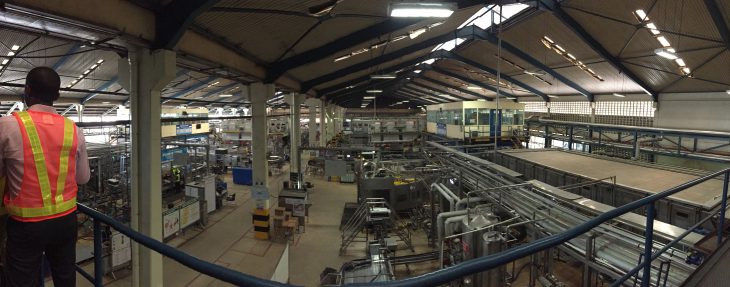THE FUND
The fund rose 0.7% in December and finished 2017 +26.1%, better than the benchmark, MSCI EFM Africa ex South Africa Net Total Return Index, in both December (-1%) and the full year (+20.2%). The best African market in December was Namibia, which rose 16.5% followed by Uganda (11.8%). The worst performers were again Zimbabwe (-19.8%) and Kenya (-4.7%). 2017 was a good year for African stock markets and most of them finished the year outperforming MSCI World Index (+10.2%). Zimbabwe was the best performer, rising 148%, followed by Malawi (+49.3%) and Ghana (+30,9%). Africa’s worst performers for 2017 were Botswana (-11.7%), BRVM, a joint exchange for e.g. Senegal, Benin and Ivory Coast, (-10.3%) and Rwanda (-9.1%). The Swedish Krona strengthened 1.5% in December and by almost 10% in 2017 thereby decreasing the SEK return in the fund.
The outperformance in the fund in December was mainly generated from the overweight in Egypt and underweights in Morocco and Kenya. Our overweight in Nigeria and underweight in Mauritius were the main negative contributors relative the benchmark. On a sector level, the fund gained from our holdings in Healthcare and Consumer Discretionary, while we lost on underweights in Consumer Staples and Energy. The relaunch of the fund in May is the major factor for the annual outperformance, enabling us to invest in Egypt, which together with Nigeria, were the main contributors to the 6%-points outperformance in 2017. The Egyptian car assembler GB Auto continued to rise in December, adding nearly half of December’s outperformance. The expected Egyptian parliament decision changing taxation (favouring domestically produced cars relative imported) in January/February combined with expectations of rate cuts increased interest in GB Auto’s shares.
We added three new holdings in December: Nigerian Breweries, retailer Shoprite, and packaging manufacturer Nampak. We believe the brighter outlook has yet to be reflected in their valuations.
(All changes in SEK).

A production line at Nigerian Brewery.
THE MARKET
The African markets performed worse (-1%) not only in comparison to other Frontier Markets (+1.5%) in December but also when looking at the full year (MSCI EFM Africa xSA +10.8%; MSCI FMxGCC +25.8%). The index, however, does not fully capture that most major markets rose more than 20% (e.g. Nigeria, Ghana, and Kenya) and that most economic indicators point to a more positive 2018. The outlook for large economies such as Nigeria and Egypt has improved considerably, in addition to countries like Ghana. The recently concluded ANC convention in South Africa, where Ramaphosa was elected as Zuma’s successor should also be considered a positive event even though the next election is not scheduled until 2019.
Egypt’s (Dec -1.3%, 2017 -5.4%) inflation did not fall as much as expected in November which was likely the main motive behind the central bank not lowering interest rates at its latest meeting on December 28th. Economists are still looking for a sharp decline in both inflation and interest rates in 2018, which should provide a boost to both the economy as well as the stock market. PMI in Nigeria (Dec -0.5%, 2017 +23.3%) rose for the eighth consecutive month, reflecting increased economic activity. The improved situation was also visible among foreign portfolio investors increasing investment by 260% in the third quarter versus 2016. Of the USD 2.8bn inflow, almost 70% went into the stock market. Foreign exchange reserves rose to the highest level in more than 3 years reaching USD 38.2bn in December. President Akufo-Addo of Ghana (Dec +0.7%, 2017 +30.9%) garnered attention for a press conference held together with French president Macron during with the latter’s visit to Accra. Akufo-Addo said that the countries in Africa cannot continue to base their decisions on expected support and contributions from the rest of the world as this strategy had not worked in the past and would not work in the future either. Leaders must stop focusing on what others can do for them and instead make decisions to best utilise present-day conditions. The speech gained a lot of traction and was seen by many as an important signal for African leaders. The World Bank lowered GDP growth outlook in Kenya (Dec -4,7%, 2017 +22,4%) citing effects from the drought as well as the interest rate cap. Growth is expected to reach 4.9% (vs 5.5% estimated earlier). On a more positive note, third quarter statistics showed increased revenues from tourism (+15.6%), coffee exports (+13.8%), and diaspora remittances (+8.9%).

